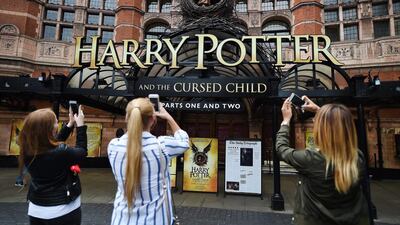Do you ever have the feeling that other families – other parents – are doing it better than you are?
I never think that, of course. My lovely children, a tween and a teen, never yell at each other about whose turn it is to dump the rubbish. My husband and I have never experienced a difference of opinion about anything.
But if a person were inclined to compare her family to other families, she might, hypothetically, imagine that other families take magical trips together, idyllic adventures through beautiful landscapes. In the magazines, these ideal families try new food, wander museums and explore local culture. It looks like a holiday.
Don’t be fooled. A family trip and holiday are same-same but different. And one prime difference is the presence of children in the travel plans. You might think that it’s harder to travel with toddlers than with older kids, but at least with young children there is the chance of them falling asleep in the stroller, soggy biscuits clenched in podgy fists. Older children stay awake and whinge.
Well, other children whinge. My family travels in a whinge-free zone. No bickering here, nothing to see, move along.
With the thought of that ideal family dancing in my head, I set off over Eid with my family, headed for London, which to many people in Abu Dhabi isn't a trip but going home. To us Yanks, however, it's a trip. In a fit of generous insanity, my husband had scored tickets for us to see Harry Potter and the Cursed Child, so we cashed in some airline miles and off we went. London and Harry Potter (oh, and an Arsenal game for some of us, while for others – me – a trip to the Tate Modern). Culture, theatre, sports. How ideal, right?
It wasn’t ideal to spend so much time shopping at Jack Wills and it wasn’t ideal to keep a steady IV drip of sweets going, butI dragged one child through the Victoria & Albert (he perked up at the exhibit about underwear) and we explored the War Museum. Never underestimate the power of tragedy to brings history alive.
And of course, there was Harry. I can’t tell you anything about the two-part play because we are sworn to a kind of Potter-omerta, but you could consider reading the script that was published last summer. I will say only that Harry’s problems seem pretty familiar, particularly if you’ve ever, you know, been a part of a family.
Harry has hit 40, and has discovered, as we all do, that dashing about having adventures is more fun than adulthood. Harry’s friend Ron even jokes that the reason Harry’s scar aches has to do with age: everything aches.
In addition to aches and pains, Harry has children, who, when we first see them, are bickering with each other on Platform 9¾. Can I tell you how comforting it is to see the magical Harry reduced to hissed commands to “behave!” as his sons torment each other?
Harry’s son Albus pushes Harry’s buttons with an expertise that can only come from being kin, and Harry responds appallingly: he explodes, saying awful things that can’t ever be unsaid.
That’s never happened to me.
Harry is just trying to keep Albus safe, but in so doing, he has put Albus in a kind of lockdown, trying to wall him off from everything. That’s the dilemma, isn’t it? To what lengths should we go to keep our children (and ourselves) safe? Do we hide all the bad things, keep secrets, stop travelling?
True, I did briefly contemplate wrapping my children in bubble wrap when they were toddlers, to protect against bumps. And sometimes I wish that I could wrap them in emotional bubble wrap, to buffer them against life’s inevitable difficulties. But as Harry learns, lockdown won’t work (ditto bubble wrap). Life’s pain always finds a way in – and families help us to heal.
Neither Harry nor his children are perfect, but they don’t have to be to be loved. That’s always been the source of the magic.
Deborah Lindsay Williams is a professor of literature at NYU Abu Dhabi

